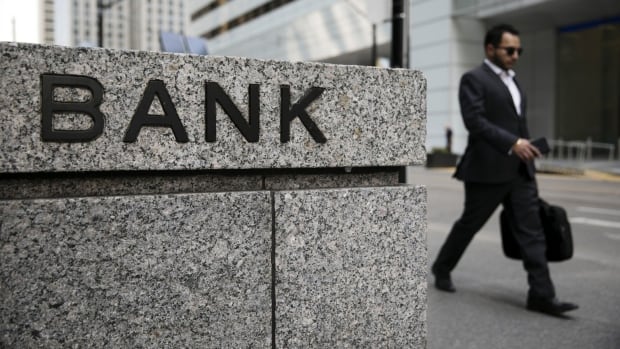The federal government wants Canadian companies to spend more of their own money to invest in their businesses and help grow the economy, so it’s bringing in a new tax on corporations when they use their profits to do nothing more than pad their bottom lines.
In the Fall Economic Statement released Thursday, the government announced it plans to implement a new tax of two per cent on stock buybacks.
As the name implies, buybacks are when publicly traded companies buy back a portion of their own shares on the stock market, at market prices.
Buybacks do nothing to improve or expand a company’s underlying business, but they have the effect of driving up share prices and improving various profitability metrics by reducing the amount of shares in the company. Investors tend to welcome them for those benefits, but in recent years the sheer volume of stock buybacks has started to raise concerns.
U.S. companies on the S&P 500 spent $881 billion buying back their own stock last year, an increase of almost 70 per cent from the previous year’s level, and almost 10 per cent higher than the previous annual record set in 2018.
That’s billions of dollars that help investors and the company’s books, but that do nothing to boost economic output, which is why there have been more and more calls to get companies to reallocate that money to something more productive.
Canada is not the only country cracking down. U.S. President Joe Biden’s recently passed Inflation Reduction Act also included a tax on stock buybacks. The U.S. tax will be levied at one per cent starting next year — a concession from the two per cent Congressional Democrats initially wanted.
Move expected to raise $420M a year
The non-partisan Tax Policy Centre estimates that the U.S. buyback tax will bring in about $124 billion over the next decade, or roughly $12 billion a year to government coffers.
That’s far more than what the federal government in Ottawa is anticipating from their measure.
“It is estimated that this measure would increase federal revenues by $2.1 billion over five years,” the government’s economic update said.
That works out to about $420 million a year, which at a two per cent tax implies the government thinks Canadian companies spend about $21 billion a year buying back their own shares.
Exact data on how much Canadian companies have spent on buying up their own shares this year is not readily available, but anecdotal evidence suggests that figure is a gross underestimation of Canada’s buyback bonanza.
Just this week, Canada’s biggest oil company Suncor announced it spent $1 billion buying back its own stock last quarter, and earlier this year Canada’s biggest bank, RBC, announced it spent $1.3 billion on buybacks last quarter. Oil giant Cenovus spent $659 million on buybacks this quarter. All told, that’s about $3 billion on buybacks from just three companies in only three months.
If the actual revenues resulting from the buyback tax don’t amount to much, that may be just fine with the government, however, because it likely means companies have chosen to put that cash to work somewhere else.
New measure coming Jan. 1, 2024
“While buying back shares is one legitimate way that corporations can return value to their shareholders, it can also divert corporate resources away from making investments in their workers and businesses in Canada,” the government said.
Kim Forrest, founder of Pittsburgh-based money manager Bokeh Capital Partners says such taxes are unlikely to do much to slow down the buyback bonanza because they’re not big enough to have much of an impact on spending intentions.
“It’s so small, it’s not that important,” she said in an interview. “At one per cent, that’s pretty weak tea,” she said of Biden’s proposal. “It’s just an attempt to tax corporations as opposed to actually getting a company to change its behaviour.”
The government says the new measure will be part of the federal budget to be unveiled next spring, and it will be in force on Jan. 1, 2024.
Trying to compel companies to invest in their own businesses is a key plank of the government’s intentions to start “tackling the productivity challenge that is Canada’s economic Achilles heel,” Finance Minister Chrystia Freeland said.
‘Terrible, terrible idea’ investment firm CEO says
But to one Bay Street money manager, the move feels more like a needless kneecapping of Canada’s investment community.
“It’s a terrible, terrible idea, and the premise behind it is flawed in that it seems to be that stock buybacks are bad,” Dennis Mitchell, CEO of Toronto-based money manager Starlight Capital told CBC News in an interview.
“It’s a poor idea because it constrains the ability of companies to allocate capital properly — and that capital is not just money, it includes employees,” he said.
“If you misallocate capital on a regular basis, then there’ll be less of it available for things like salaries and benefits for and hiring people.”


